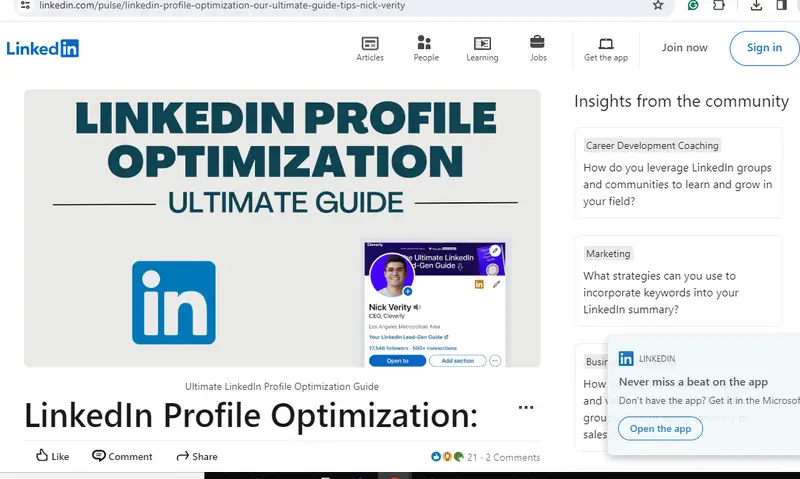The work landscape is rapidly evolving, with remote work increasingly prevalent across industries. This shift offers exciting opportunities for job seekers, including those with little to no traditional work experience. In this guide, we’ll explore how you can position yourself to land a remote job, even if you’re starting your career journey.
The Rise of Remote Work and Its Benefits
Remote work has experienced exponential growth in recent years, accelerated by technological advancements and global events. This trend offers numerous benefits:
- Flexibility in work hours and location
- Improved work-life balance
- Access to a global job market
- Reduced commute times and costs
- Increased productivity for many workers
Read: Remote Sales Representative at Deutsch Financial Group & $20,000 to $80,000 per year
Why Companies Are Increasingly Open to Hiring Remote Workers Without Experience
Employers are recognizing the advantages of hiring remote workers, even those without extensive experience:

- Access to a broader talent pool
- Reduced overhead costs
- Increased diversity in the workforce
- Ability to scale teams quickly
- Focus on skills and potential rather than traditional credentials
Understanding the Remote Job Market
To successfully land a remote job, it’s important to understand the current landscape and identify opportunities that align with your skills and interests.
Types of Remote Jobs Suitable for Beginners
Several roles are particularly well-suited for those new to remote work:
- Customer Support Representative
- Virtual Assistant
- Data Entry Specialist
- Social Media Coordinator
- Content Writer
- Junior Web Developer
- Online Tutor or Teacher
- Transcriptionist
These positions often require skills that can be developed independently and demonstrate a clear path for growth.
Industries Embracing Remote Work for Entry-Level Positions
While remote work is expanding across sectors, some industries are particularly open to entry-level remote workers:
- Technology and Software Development
- E-commerce and Digital Marketing
- Education and E-learning
- Customer Service and Support
- Content Creation and Digital Media
- Health and Wellness (e.g., telehealth services)
- Financial Services and Fintech
Top Companies Known for Hiring Remote Workers Without Experience
Several companies have gained reputations for being remote-friendly and open to hiring less experienced candidates:
- Buffer
- Zapier
- GitLab
- Automattic
- Appen
- TranscribeMe
- Rev
- VIPKID (for teaching English online)
Research these companies and similar ones in your field of interest to understand their hiring practices and company cultures.
Essential Skills for Remote Work
Succeeding in a remote role requires a unique set of skills. Developing these will make you a more attractive candidate, even without traditional work experience.
Technical Skills
- Proficiency in basic office software (Microsoft Office or Google Workspace)
- Familiarity with project management tools (e.g., Trello, Asana)
- Competence in video conferencing platforms (Zoom, Google Meet, Skype)
- Basic troubleshooting abilities for common tech issues
Soft Skills
- Self-motivation and discipline
- Excellent time management
- Strong written and verbal communication
- Adaptability and problem-solving
- Ability to work independently
- Cultural sensitivity for global teams
How to Develop These Skills
- Online Courses: Platforms like Coursera, edX, and LinkedIn Learning offer courses on remote work skills.
- Free Resources: YouTube tutorials, blogs, and podcasts can provide valuable insights and tips.
- Practice Projects: Create personal projects to apply and showcase your skills.
- Virtual Volunteering: Gain experience by offering your skills to non-profit organizations.
- Online Communities: Join forums and groups focused on remote work to learn from others’ experiences.
Building Your Online Presence
Your online presence is your virtual first impression in the remote job market. A strong digital footprint can significantly enhance your chances of landing a remote position.
Creating a Professional LinkedIn Profile

- Use a clear, professional profile picture
- Craft a compelling headline that reflects your aspirations
- Write a concise but informative summary
- List relevant skills and seek endorsements
- Join industry-relevant groups and engage in discussions
- Share and comment on content related to your field of interest
Developing a Personal Website or Portfolio
- Choose a clean, professional design
- Showcase your skills and any projects you’ve completed
- Include a well-written “About Me” section
- Provide easy ways for potential employers to contact you
- Consider adding a blog to demonstrate your knowledge and writing skills
Leveraging Social Media for Professional Networking
- Audit your existing social media profiles for professionalism
- Use Twitter to follow industry leaders and join relevant conversations
- Create and share content related to your field on platforms like Medium or YouTube
- Engage thoughtfully in professional Facebook or Reddit groups
- Use Instagram or TikTok to showcase your personality and behind-the-scenes of your professional development
Tailoring Your Resume for Remote Positions
Your resume is often your first opportunity to make an impression on potential employers. For remote positions, it’s crucial to highlight your readiness for virtual work.
Key Elements to Include in a Remote-Friendly Resume
- Remote-specific skills (e.g., proficiency in collaboration tools)
- Self-motivation and time management abilities
- Strong communication skills, especially in writing
- Any previous remote work experience, including freelance or volunteer work
- Relevant certifications or online courses completed
How to Highlight Transferable Skills
- Focus on skills that translate well to remote work (e.g., independence, problem-solving)
- Use specific examples to demonstrate these skills in action
- Quantify your achievements where possible
- Emphasize digital literacy and adaptability
Tools and Services for Creating Standout Resumes
- Canva: Offers professional templates with customizable designs
- Resume.io: Provides industry-specific templates and writing tips
- Grammarly: Ensures your resume is free of grammatical errors
- JobScan: Helps optimize your resume for Applicant Tracking Systems (ATS)
- TopResume: Offers professional resume writing services
Remember to tailor your resume for each application, emphasizing the skills and experiences most relevant to the specific remote position.
Read: Applying for Remote Jobs at OutPLEX: A Comprehensive Guide
Navigating Remote Job Boards and Platforms
Knowing where to look for remote opportunities is crucial in your job search. Here’s how to use job boards and platforms effectively to find suitable positions.
Overview of Popular Remote Job Boards
- Remote OK: Offers a wide range of remote jobs across various industries
- We Work Remotely: One of the largest remote work communities
- FlexJobs: Curated list of remote, flexible, and part-time jobs (paid service)
- Jobspresso: Features curated remote jobs in tech, marketing, and customer support
- Working Nomads: Aggregates remote job listings from across the web
Tips for Using General Job Sites to Find Remote Opportunities
- Use keywords like “remote,” “work from home,” or “telecommute” in your search
- Set location filters to “remote” or “anywhere” if available
- Check company websites directly for remote positions
- Use LinkedIn’s job search feature with the “remote” filter
- Don’t overlook traditional job boards like Indeed or Monster, but refine your search for remote positions
How to Set Up Job Alerts and Optimize Your Search
- Create accounts on your preferred job boards to save searches and set up email alerts.
- Use Boolean search operators to refine your results (e.g., “remote” AND “entry-level” NOT “senior”)
- Set up Google Alerts for specific job titles or companies you’re interested in
- Follow companies that hire remote workers on LinkedIn and other social media platforms.
- Join remote work-focused groups on LinkedIn and Facebook for job postings and networking opportunities.
Remember to apply to positions promptly, as remote job postings often receive many applications. Tailor your application materials for each position, highlighting how your skills align with the specific job requirements and company culture.
Networking in the Digital Space
Your network can be your most valuable asset in the remote work world. Here’s how to build and leverage connections in the digital realm:
Joining Online Communities and Forums for Remote Workers
- Reddit: Join subreddits like r/remotework or r/digitalnomad
- Slack Communities: Participate in remote work-focused Slack groups
- Facebook Groups: Look for groups dedicated to remote work and digital nomads
- Discord Servers: Join servers focused on your industry or remote work in general
Attending Virtual Networking Events and Webinars
- Use platforms like Eventbrite or Meetup to find virtual events
- Participate in industry-specific online conferences
- Attend company-hosted webinars to learn about potential employers
- Engage actively by asking questions and participating in discussions
Utilizing LinkedIn for Connections and Opportunities
- Optimize your LinkedIn profile for remote work
- Connect with professionals in your target industry
- Engage with content shared by potential employers
- Use LinkedIn’s job search features for remote positions
- Publish articles or share insights to establish your expertise
Showcasing Your Potential Without Experience
When you lack traditional work experience, creativity is key. Here’s how to demonstrate your capabilities:
Creating a Portfolio of Personal Projects
- Develop a personal blog or website
- Contribute to open-source projects on GitHub
- Create sample work relevant to your desired role (e.g., marketing plans, design mockups)
- Document your learning journey through case studies or project write-ups
Volunteering or Freelancing to Gain Relevant Experience
- Offer your skills to non-profit organizations
- Take on small projects through platforms like Upwork or Fiverr
- Contribute to community projects or local businesses
- Participate in hackathons or online competitions
Highlighting Transferable Skills from Non-Traditional Experiences
- Emphasize skills gained from hobbies, sports, or personal projects
- Highlight leadership roles in school or community organizations
- Discuss how your educational background applies to the role
- Frame life experiences (e.g., travel, language learning) in terms of valuable skills gained
Understanding Remote Work Tools and Practices
Familiarity with remote work tools and best practices can set you apart from other candidates:
Popular Collaboration and Communication Tools

- Slack or Microsoft Teams for team communication
- Zoom or Google Meet for video conferencing
- Trello, Asana, or Jira for project management
- Google Workspace or Microsoft 365 for document collaboration
- Notion or Confluence for knowledge management
Best Practices for Remote Work Productivity
- Establish a consistent daily routine
- Create a dedicated workspace
- Use time management techniques like the Pomodoro method
- Take regular breaks and practice good ergonomics
- Overcommunicate with your team to ensure clarity
How to Demonstrate Your Familiarity with Remote Work Culture
- Discuss your experience with asynchronous communication
- Highlight your ability to manage your time and prioritize tasks
- Emphasize your proactive approach to problem-solving
- Showcase your written communication skills in your application materials
Read: Secure your Dream Remote Job at Coursera: Application Guide & Tips
Negotiating Offers and Understanding Remote Work Policies
Once you receive an offer, it’s crucial to understand the terms and negotiate effectively:
What to Look for in a Remote Work Contract
- Clear definition of work hours and availability expectations
- Equipment and home office stipends
- Communication and performance evaluation processes
- Data security and confidentiality clauses
- Travel requirements for occasional in-person meetings
Understanding Different Types of Remote Work Arrangements
- Fully remote: Work from anywhere, often with flexible hours
- Hybrid remote: Split time between remote and office work
- Geographically restricted remote: Work from home but within a specific region
Tips for Negotiating Salary and Benefits for Remote Positions
- Research salary ranges for similar remote positions
- Consider the cost of living in your area vs. the company’s location
- Negotiate for remote-specific benefits (e.g., internet reimbursement, co-working space allowance)
- Discuss opportunities for professional development and career advancement
- Be prepared to articulate your value, especially if you lack traditional experience
Overcoming Common Challenges
The path to landing a remote job can be challenging, but with the right mindset and strategies, you can overcome obstacles:
Addressing Concerns About Lack of Experience
- Be honest about your experience level, but emphasize your eagerness to learn
- Highlight relevant skills and projects, even if they’re not from traditional work experiences
- Offer to complete a paid trial project to demonstrate your capabilities
- Seek out entry-level or internship opportunities specifically designed for newcomers
Dealing with Rejection and Staying Motivated
- View rejections as learning opportunities and ask for feedback when possible
- Set small, achievable goals to maintain momentum in your job search
- Join support groups or forums for job seekers to share experiences and advice
- Practice self-care and maintain a healthy work-life balance during your search
Balancing Job Search with Skill Development
- Create a structured schedule that allocates time for both job searching and learning
- Focus on developing skills that are in high demand for remote positions
- Use rejection feedback to identify areas for improvement and target your learning
- Engage in projects or volunteer work that allow you to apply new skills immediately
Read: Your Guide to Landing a Remote Job at CrowdStrike: Steps to Stand Out
Continuing Education and Career Growth
Landing your first remote job is just the beginning. Continuous learning is essential for long-term success:
Importance of Ongoing Learning in Remote Careers
- Technology and tools are constantly evolving
- Soft skills become increasingly important as you advance
- Diverse skill sets are valuable in the remote work ecosystem
Resources for Skill Development and Certifications
- Online learning platforms: Coursera, edX, Udacity
- Industry-specific certifications: Google Digital Garage, HubSpot Academy
- Coding boot camps for tech roles: FreeCodeCamp, Codecademy
- Soft skills development: LinkedIn Learning, Toastmasters International
Planning for Long-term Career Growth in a Remote Setting
- Regularly reassess your career goals and skills
- Seek out mentorship opportunities within your company or industry
- Take on stretch assignments to broaden your experience
- Stay informed about industry trends and emerging roles
- Build a personal brand through thought leadership and networking
Remember, landing a remote job with no experience is challenging but entirely possible. Stay persistent, be open to learning, and don’t hesitate to start small. Every step you take brings you closer to your goal of a successful remote career.


